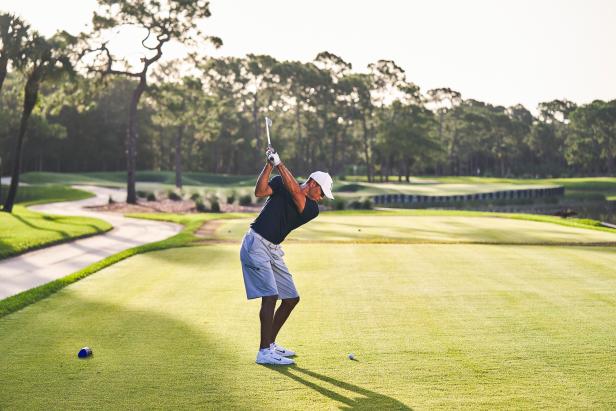Products You May Like
Tour pros take in a great deal of information before hitting a shot into a par 3. What’s the raw yardage to the flag, the front of the green, and the back? Is it playing uphill or downhill, and how much? How much room do I have between the pin and the edge of the green? Where exactly do I want to land this ball?
All that information is concrete—it’s simple math. There is, however, one crucial judgment call: What is the wind doing?
Amateurs often misjudge this by focusing on what they feel, or what a few blades of grass do when you toss them into the air. But that’s measuring the wind at the tee, rather than where it’s most important: at the green.
Allow Tiger Woods to explain.
“As the ball goes out there, it goes through the wind here. As it kicks up, that’s where I want to know what the wind is doing. So I’ll talk with Joey about what he sees, what he feels, and we’ll kind of discuss it. Then I’ll make the adjustments as I get into it.”
Woods’ method is backed up by physics. The ball is traveling fastest just as it leaves the clubface. It slows down as it travels closer to the hole, so it makes perfect sense that that’s when the ball is most susceptible to wind. It’s a similar concept to putts being more susceptible to break near the hole than right after impact with the putter.


